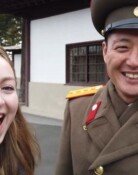Olympics hoped to be a true festival of peace and harmony
Olympics hoped to be a true festival of peace and harmony
Posted February. 13, 2014 06:15,
Momentum is building in the Sochi Winter Olympic Games, to which summit diplomacy having made a huge contribution. Russian President Vladimir Putin was at the center, without doubt.
The opening ceremony was attended by many heads of states, including Chinese President Xi Jinping and Japanese Prime Minister Shinzo Abe, though heads of the U.S., major European countries and Korea were not present.
This is the first Olympics held in Russia since the collapse of the Soviet Union in 1991, and a big event for the country that brought a new prosperity after many years of drift. Game facilities, railroads, express ways and lodging facilities were all newly built. Total costs reached 50 trillion won (47.2 U.S. billion dollars), the highest in the history of summer and winter Olympics.
Putin resumed the presidency two years ago after having resigned as Russian prime minister. During the presidential campaign at the time, this reporter met him for an interview in Moscow with executives of medias of five countries including the U.K., France and Germany.
I asked about the northern territorial issue, to which Putin replied, "I like hikiwake (no winners or losers)." He had a very confident posture, being straightforward and frank in answering to questions. Though Putin did not say, the Sochi Olympics must have strongly motivated him to resume presidency. He has a humiliating memory back in the 1980 Moscow Olympics that Western countries including the U.S. boycotted countries` participation due to the Soviet Union`s attack in Afghanistan in late 1979.
Back then, I was covering Japanese political news, and saw then Japanese Prime Minister Masayoshi Ohira agonized. Public opinion supported sports and politics should be separated, and after serious consideration he followed U.S. actions. Korea also followed suit since it was going through a turbulent time after the assassination of then Korean President Park Chung-hee. Athletes, both at home and abroad, who had longed to participate, had to give up.
The Moscow Olympics degraded Russia`s global status and left the country worried about its future. Four years later at the 1984 Los Angeles Olympic Games, the Soviet Union counterattacked by boycotting. After years, the world`s athletes gathered at the Seoul Olympics in 1988. At the opening ceremony of the Sochi Winter Olympics, President Putin must have been deeply moved by the largest number of countries in the history of winter Olympics.
At the opening ceremony, the heads of Japan and China refrained from talking to each other, but Putin presided meetings with both heads. At a meeting with Chinese President Xi, he reconfirmed joint hosting of an event commemorating the 70th anniversary of war victory. He also promised to visit Japan to Prime Minister Abe and the two had lunch together after the meeting. Putin also brought a dog that Akita Prefecture had sent in 2012 to Abe.
Four years later in 2018, the winter Olympics will be held in Pyeongchang, Korea, and in 2020 summer Olympics in Tokyo. It will be the first Olympics in Tokyo in 56 years since 1964.
The 1988 Seoul Olympics imprinted to the world an image of the country`s rapid modernization and democratization. The 1964 Tokyo Olympics demonstrated how Japan overcame the ruins of World War II for reemergence. This was when Shinkansen train was opened between Tokyo and Osaka and an express road was built in Tokyo. Japan had picked a young man who was born on the day atomic bomb dropped in Hiroshima as final person to carry sacred torch, in an attempt to tell the world it is pursuing peace.
Olympics will again be held in Tokyo in half a century, and Japan will have to show its recovery from Tohoku earthquake and its pursuit of peace. Though it was not an issue at the election of Tokyo governor, Japan can`t open a peace festival while fighting with China and Korea.
Both Korea and Japan should make efforts to refresh mood by cooperating each other in various areas by linking with the 2018 Pyeongchang Winter Olympics. It will be a win-win if Japan can bring together athletes and spectators who attended the Pyeongchang Olympics, and if Korea can in turn bring in those who came to Japan for Tokyo Olympics.
People in Korea and Japan stand up late to watch Sochi games. There is no time difference between the two countries. They are very close to each other. "Winter in Pyeongchang, and summer in Tokyo," is a nice slogan to start with.







